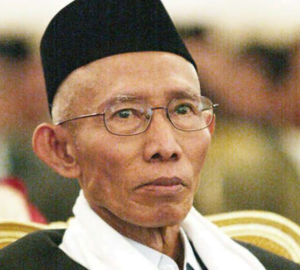In general, there are two kinds of zakat, namely zakat fitrah which are issued during Ramadan and zakat mal (assets) which are issued for assets owned by individuals with various specific terms and conditions. In Islam, in addition to being a form of ritual transfer, the practice of zakat is also known as the realization of social shifts, especially in reducing poverty.
However, the provision of zakat is still understood as a one-time aid to mustahik (zakat recipients) and just runs out, especially in the case of zakat wealth. This phenomenon is one of the problems seen by Kiai Sahal Mahfudz as social inequality and must be overcome by a zakat management system that runs in accordance with sharia guidance and times.
Long before 1999, Zakat Management Act was enacted and the zakat management system by contemporary zakat institutions emerged, Kiai Sahal had become a pioneer in the development of zakat assets, better known as “productive zakat”. According to Kiai Sahal, zakat is one of the important instruments in alleviating poverty. The word productive in it means it produces a lot, gives a lot of results, produces a lot of valuables, which indeed has good results.
In his book Nuansa Fikih Sosial (Nuance of Social Jurisprudence), Kiai Sahal stated the need for a basic need approach model for mustahik as a form of this productive zakat application. To realize this, the distribution of zakat must be managed by institutionalizing zakat itself. This arrangement also involves modern aspects of management that can be relied on so that zakat becomes a meaningful force.
What is meant by Kiai Sahal is about the management aspects of zakat, namely data collection, zakat collection, storage, distribution, and concerning human quality. All of these things can be achieved if the management of zakat is realized in official institutions, not individuals or individuals whose credibility is not clear. The zakat management model through professional institutions will certainly bring zakat to its function that is right on target in the welfare of the people.
According to Kiai Sahal, the poor must be trained intensively in order to have awareness in opening a business and managing it professionally. Internal awareness must be cultivated in advance in order to be able to use money productively. This training must be carried out by an expert team so that the results are in accordance with the price and target.
For Kiai Sahal, amil is the main force in managing the assets of zakat. Amil must carry out his duties with a professional, skilled personnel, master the problems related to zakat, trustworthiness and honesty. The skills of an amil are reflected in the pattern of management which is not only limited to the distribution of zakat assets, but also periodic empowerment for mustahik.
Thus, amil has a significant function in designing zakat management programs from consumtive-oriented to productive-oriented ones. In the end, there must always be various efforts so that zakat is truly entrenched in the living environment of the people and nation of Indonesia. Nasaruddin Umar added that the progress of the management of zakat reflects the growth of economic welfare and income of the people measured by the social responsibility of the rich towards the poor. Zakat culture also has a positive correlation with the balance of the country’s economy.
Artikel ini juga tersedia dalam bahasa:
 Indonesian
Indonesian





